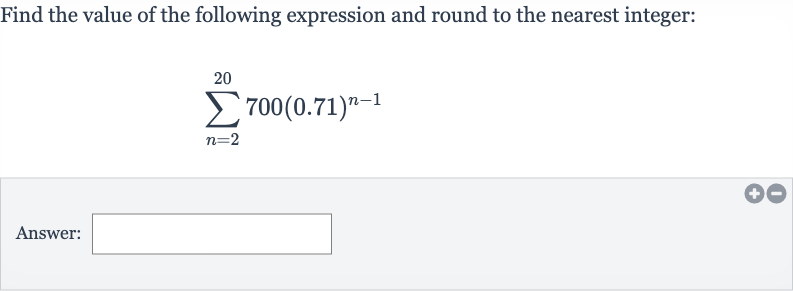Full solution
Q. Find the value of the following expression and round to the nearest integer:Answer:
- Given series parameters: We are given a geometric series with the first term and the common ratio . The sum of a finite geometric series is given by the formula , where is the number of terms. First, we need to find the number of terms in the series.
- Calculate number of terms: The series starts at and ends at , so the number of terms is . Now we can use the formula for the sum of a geometric series to find the sum.
- Calculate sum formula: Plugging the values into the formula, we get . Let's calculate the sum.
- Calculate common ratio: First, calculate using a calculator to ensure accuracy. (rounded to four decimal places for simplicity).
- Substitute values into formula: Now, substitute this value into the sum formula: .
- Calculate numerator subtraction: Perform the subtraction in the numerator: .
- Calculate denominator subtraction: Now, perform the subtraction in the denominator: .
- Calculate numerator multiplication: Multiply the numerator: .
- Calculate division: Divide by the denominator: .
- Round final result: Round the result to the nearest integer: rounds to .

